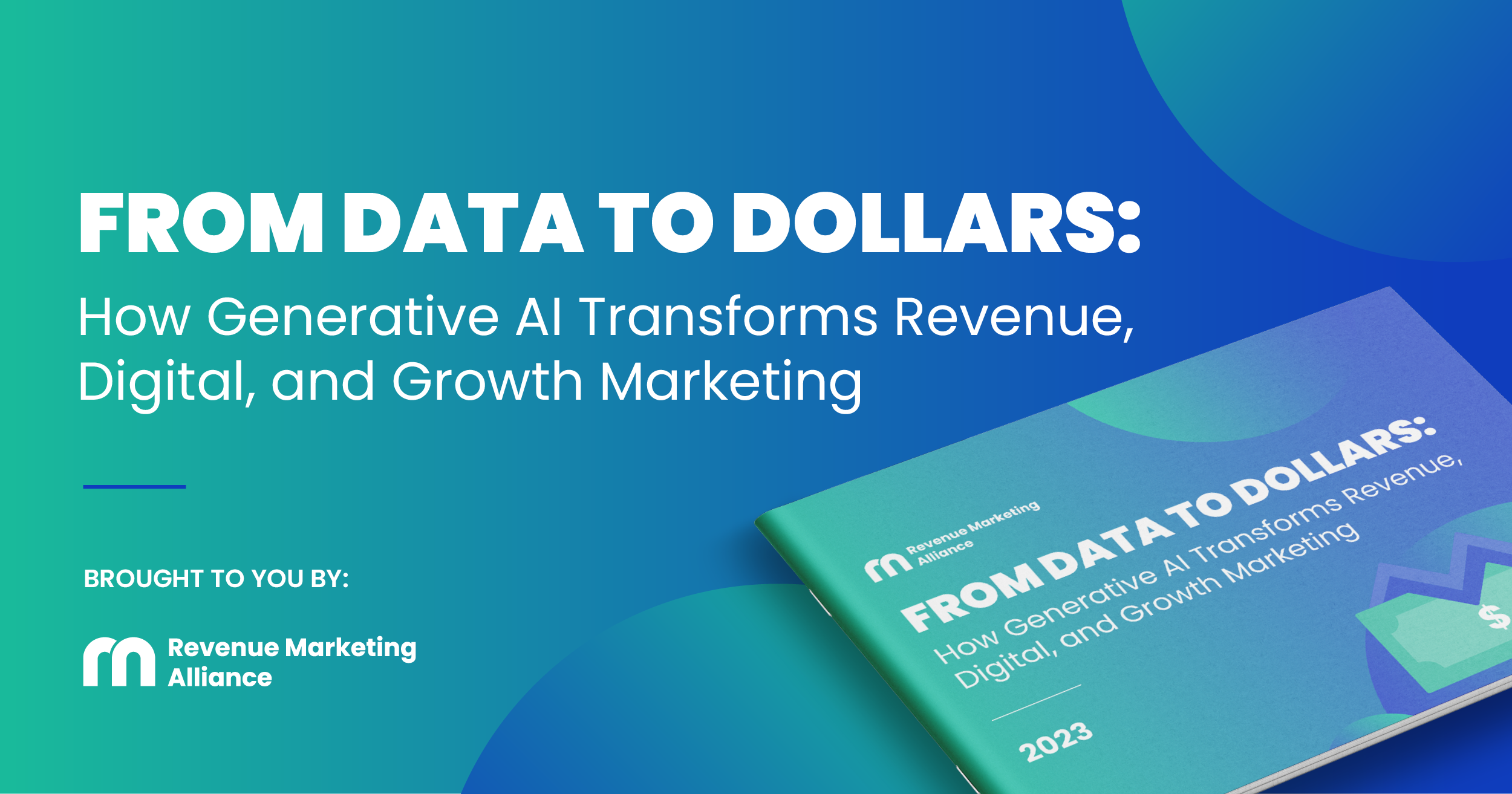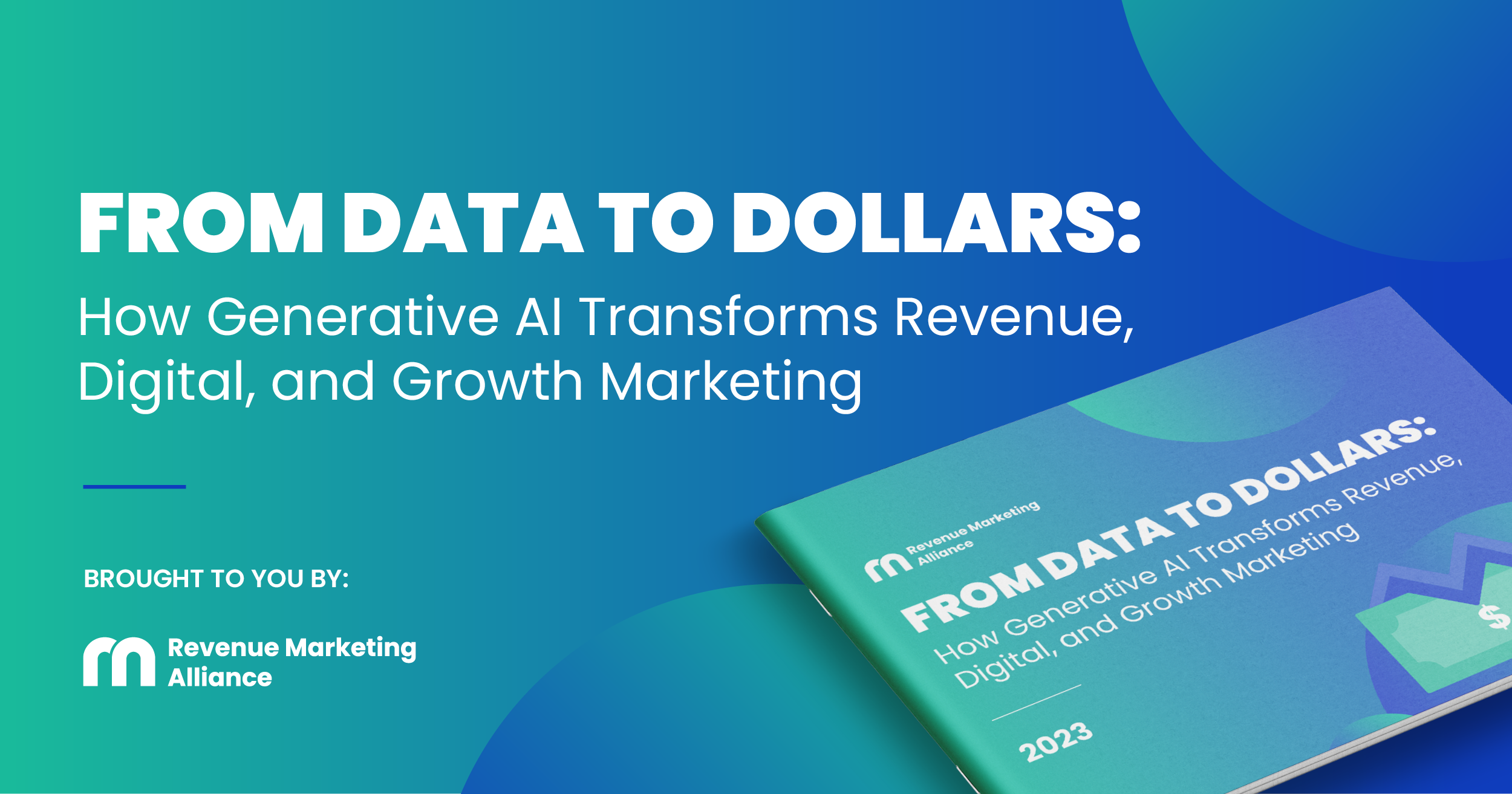As marketing strategies continually adapt to new technologies and trends, the pursuit of customer retention stands as a paramount objective for businesses looking to secure long-term success and profitability.
Yet, in the era of digital connectivity and information abundance, traditional retention tactics must meet modern consumers' dynamic needs and expectations.
Thus emerges the concept of data-driven retention marketing – a transformative approach that capitalizes on the wealth of data available to businesses to craft personalized, targeted, and impactful retention initiatives.
Join us on a journey as we unravel the untapped potential of leveraging data to elevate your retention marketing strategies to great new heights.
Understanding the retention imperative
Before delving into data-driven retention marketing, it's essential to underscore the importance of retention in the broader marketing ecosystem.
Beyond the allure of acquiring new customers, retaining existing ones is a cornerstone of sustained growth and profitability. Loyal customers not only contribute to revenue streams but also serve as brand advocates, driving referrals and amplifying brand reach organically.

In essence, retention isn't just about retaining customers – it's about cultivating enduring relationships that yield tangible business outcomes.
The evolution of retention marketing
Traditionally, retention marketing focused on broad, one-size-fits-all approaches aimed at preventing churn and encouraging repeat purchases. However, as consumer expectations evolve and competition intensifies, businesses must pivot towards a more nuanced and personalized approach to retention.
Enter data-driven retention marketing – a paradigm shift that leverages insights derived from customer data to deliver tailored and relevant experiences at scale.
This evolution marks a departure from generic mass marketing tactics toward precision targeting and hyper-personalization – a pivotal shift in the quest for customer loyalty and advocacy.
Unleashing the power of data analytics
At the heart of data-driven retention marketing lies an arsenal of data analytics tools and techniques.
Advanced analytics platforms allow you to extract actionable insights from vast troves of customer data, uncovering patterns, trends, and correlations that inform strategic decision-making.
From predictive modeling and customer segmentation to sentiment analysis and lifetime value estimation, data analytics enables marketers to anticipate customer needs, identify at-risk segments, and tailor retention initiatives accordingly.
Not only that, with the advent of artificial intelligence (AI) and machine learning, you can automate and optimize retention campaigns in real-time, delivering timely and relevant messages across multiple touchpoints with unparalleled precision and efficiency.
Personalization: The key to lasting engagement
Consumers today crave personalized experiences that resonate with their unique preferences and interests.
Data-driven retention marketing enables you to deliver precisely that – hyper-personalized interactions that foster deep emotional connections and drive sustained engagement.
By leveraging customer data to create detailed customer profiles and segmentation models, you can tailor messaging, offers, and recommendations to resonate with each individual's needs and preferences.
Whether it's personalized product recommendations based on past purchases, targeted promotions timed to coincide with key milestones, or proactive customer service interventions triggered by predictive analytics, personalization lies at the heart of effective retention marketing.

Predictive analytics: Anticipating customer behavior
One of the most potent applications of data-driven retention marketing is predictive analytics – a methodology that leverages historical data to forecast future customer behavior and outcomes.
Predictive analytics lets you identify early warning signs of churn and anticipate future buying patterns, which means you can intervene proactively to mitigate attrition. How does predictive analytics enable you to do this? By analyzing past interactions, purchase history, browsing behavior, and demographic information.
Predictive analytics helps you to identify customers at risk of defection, anticipate future purchases, and segment audiences by their engagement potential – all giving you a competitive edge in retaining valuable customers.
Optimizing the customer journey
Optimizing the customer journey is fundamental when it comes to driving lasting engagement and loyalty.
You can identify pain points, friction areas, and opportunities for improvement at each touchpoint by mapping out the customer lifecycle – from awareness and acquisition to retention and advocacy.
Armed with insights deep data-driven insights, you can optimize the customer journey, streamline the purchase process, and deliver seamless, personalized experiences that delight customers and foster long-term relationships.
Optimizing the customer journey is crucial for maximizing retention and lifetime value. This spans dynamic content nurturing leads, personalized onboarding for product adoption, and re-engagement campaigns reviving dormant customers.
The role of automation and AI
Automation and AI are driving a paradigm shift in retention marketing, enabling marketers to scale personalized engagement initiatives and optimize campaign performance with unprecedented efficiency and efficacy.
From automated email workflows and chatbots to AI-powered recommendation engines and predictive modeling algorithms, automation and AI technologies enable marketers to deliver timely, relevant messages across multiple channels, at scale.
Leveraging machine learning algorithms to analyze vast volumes of customer data in real-time allows marketers to uncover hidden patterns, correlations, and insights that inform strategic decision-making and drive continuous optimization.
Automation and AI are transforming retention marketing through task automation, individualized messaging, and predictive modeling of future customer behavior – revolutionizing processes in profound ways.
Challenges and considerations
While data-driven retention marketing holds immense promise, it's not without its challenges and considerations.
From data privacy and security concerns to the need for cross-functional collaboration and investment in technology infrastructure, you need to carefully navigate a myriad of obstacles on your journey toward data-driven excellence.
We’re talking about data fragmentation and siloed systems, which can hinder your ability to derive actionable insights and deliver cohesive customer experiences.
Addressing these challenges requires a holistic approach that encompasses technology, talent, and strategy, along with a relentless commitment to customer-centricity and data-driven decision-making.
Conclusion: The future of retention marketing
As audience preferences and media consumption habits change at a breakneck pace, the journey toward customer retention has undergone a profound transformation.
No longer confined to traditional methods, businesses are now harnessing the power of data-driven strategies to forge deeper connections, foster lasting engagement, and drive sustainable growth.
Data-driven retention marketing represents more than just a shift in tactics – it embodies a fundamental change in mindset. It challenges businesses to move beyond the constraints of mass marketing and embrace the era of personalization and hyper-targeting.
Yet, real challenges and considerations lie amidst the promise of data-driven retention marketing. From navigating data privacy regulations to overcoming organizational silos, businesses must confront a myriad of obstacles on their journey toward data-driven excellence.
That being said, it’s precisely these challenges that present opportunities for growth and innovation.
As we look toward the future, one thing remains abundantly clear: Data-driven retention marketing will continue to play a pivotal role in driving long-term success and competitive advantage.
About the author
Dr. Islam Gouda is a young professional with a passion for marketing. Dr. Gouda has an honorary doctorate from the University of California in Strategic Marketing. He also has a master's degree from Florida State University and an American University of Sharjah graduate in Marketing and Management.
Dr. Gouda has marketing-focused business experience with a strong analytical ability to use available market data for strategic marketing, business development, and product development purposes along with the identification of new business opportunities and measurement of ROI.
Dr. Gouda's specialties include leadership and communications skills with the ability to adapt to a wide variety of cultures and to manage and work as part of cross-functional teams.
Want to learn more about how AI transforms revenue, digital, and growth marketing?
Our free eBook will help you understand the potential of generative AI in driving revenue and optimizing your marketing efforts.
Inside, you’ll find actionable insights from a wealth of sources, including industry experts with extensive experience and knowledge in generative AI.
🤖 Understanding generative AI
🫂 Leveraging AI for audience segmentation and personalization
📈 Enhancing customer journey and conversion rates
🔎 Predictive analytics and forecasting
✍️ Implementing generative AI in revenue marketing
Download your copy today to get started with proven techniques and cutting-edge strategies to inject high-octane AI into your marketing arsenal. 👇




 Follow us on LinkedIn
Follow us on LinkedIn




